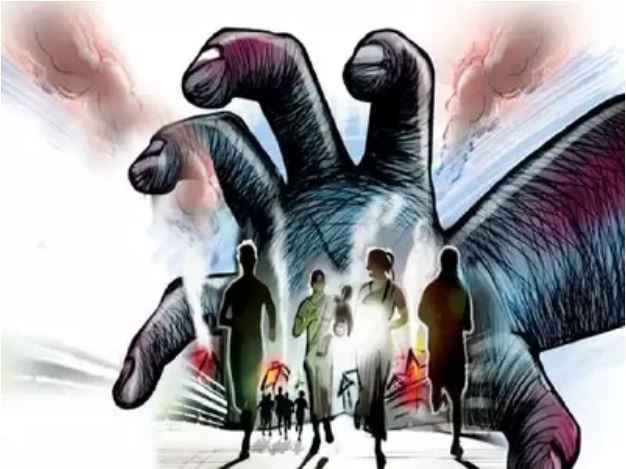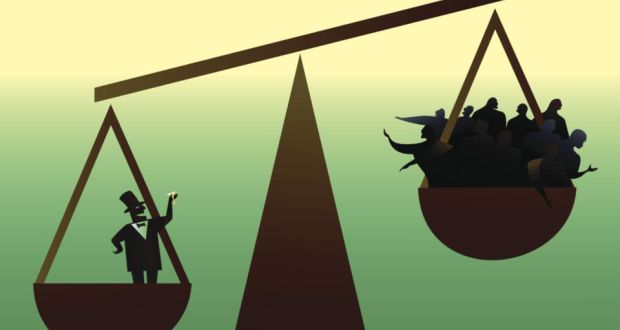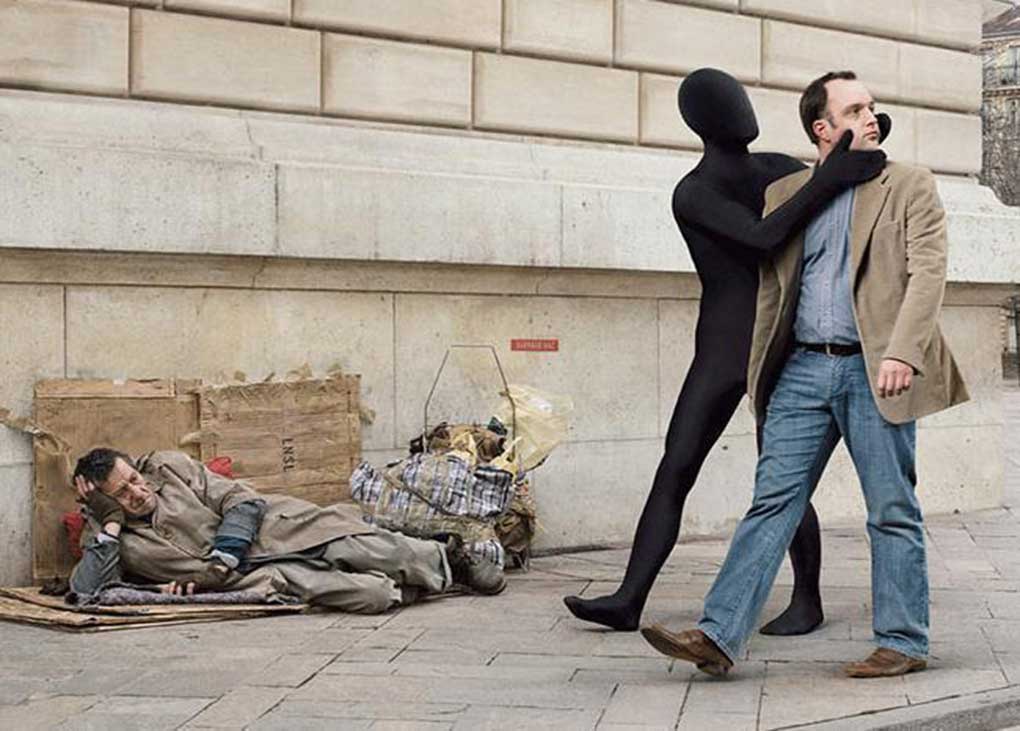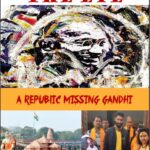“The Eye” പ്രഖ്യാപിച്ച,
“ക്യാമ്പസ്സിൽ ഇടതുപക്ഷമായിരുന്നവർ പിന്നീട് വലതുപക്ഷമാകുന്നത് എങ്ങനെ?”
എന്ന സംവാദത്തിന്റെ രണ്ടാം ലേഖനം:
Social Responsibility in the Era of Aspirations
MANOJ K. C. [1989 EEE]
Why do those involved in progressive movements and politics during college days take a path hitherto unthinkable and become vanguards of hardcore communal politics or apolitical later? Considering the political developments in the recent past, this is a topic worth an exploration.
As an observer of politics and sociology, let me start by stating the obvious that there isn’t one reason. These have evolved following the social changes driven by global politics and shaped by the relation between capital and labour. In fact, the nature and involvement in politics and the general attitude towards the same itself has changed probably for the worse, if I may say so.
Let us start by exploring the first question as to why people shift.
The reason for getting involved and being part of left campus activism could be many. It could be the background one comes from, identifying with a cause that is prominent when one joins the college, adolescent naivety of wanting to address the subject of justice, fairness etc or peer pressure and wanting to be part of a dominant group. The peer pressure factor can cut both ways and keep people away as well.

What do we carry forward to the society from the campus? If one became part of campus left politics to be identified with the dominant group and haven’t imbibed any of the inherent values, then in all likelihood, one would withdraw into a cocoon of selfishness and continue to take a convenient position identifying with the then dominant or majoritarian politics without any qualms.
For many others, the reality of class identity strikes, as one settles in to a good job or migrate to greener pastures. As we would move around in privileged circles, it is very likely that we identify ourselves here firmly and loose the ability to critically examine the social conditions evolving around us. This may not be a natural process as it seems but is orchestrated by the social conditioning imposed by the socio-economical policies followed globally and requires a deeper examination.
The other diversion that could happen is to indulge in tokenism. It could be “doing our bit” in the form of charity or over identification with an array of liberal topics like gender politics, eco issues, tribal rights, LGBTQ+ etc. as a manifestation of the need to be fashionably intellectual or radical and at the same time, distance from the ground reality of class issues. Class issues are everyday reality in front of our eyes whereas tribal rights or LGBTQ + are issues of the other beings but at a distance and hence we can be sympathetic to them and lend our “voice” without getting our hands dirty. The distance gives us the comfort and hope of status quo.
The other common narrative that many amongst us more than eagerly own and propagate is that of personal goodness becoming the prime mover for a noble or egalitarian society which sounds like a good moral studies lesson, but otherwise hollow. The only objective of such a posturing is to absolve the state of all responsibilities and put tremendous pressure on individuals to absorb the guilt of how things are. This shifting of burden is a typical technique of a consumerist society, and at a basic level for our social class a means of escapism or more generally a pompous expression for our feeling of entitlement – “we are here because we deserve to be”. Such a feeling of entitlement and at the same guilt, drives at least a few from our class to becoming followers (or disciples) of sophisticated modern era five-star ‘godmen’, who without any responsibility of political or ideological position, offers a quick-fix solution to perform our duties to society by doing “service” in ashrams or institutions run by them. The otherwise vehement proponents of rule of law oppose any attempt by the state to put legitimate controls on such organisations to make them follow the rule of the land by citing interference and projecting it as an attempt to disrupt the noble activities of such godmen. The common gripe being that the politicians will neither do any good nor allow someone who wants to.
Next, I specifically draw attention to individuals who have shifted to a nauseatingly bigoted outlook stemming out of a pathological hatred towards the “other”. I presume this deep-seated bias is indeed pathological and in a balanced society would have called for treatment. However, such mental conditions become acceptable normal expression or another point of view in the society due to the conducive environment created specifically to divert attention from real political issues. The hatred can be calibrated and ignited at appropriate intervals to harvest the destructive diversion as the situation asks for, starting from lynching to mob violence and even to a full-blown war.

Going a bit deeper and linking it to the socio-economic factors, let us examine how the politics have evolved over generations.
I belong to what can be called the gen X (Late 60s to early 80s) and to be honest there isn’t anything to be proud of in the way politics and society in general has regressed. The shift is alarming because of the influence with which this generation has steered the society down the path of serious regression and a forgetting or denial of history. Let us remember that this generation saw the
transition from a liberal market to neo-liberal market fundamentalism to the riseof digital era monopolies and oligarchs, which are ultimately threatening the fundamentals of capitalism itself. The flow of wealth from bottom to top is so asymmetric and alarming that contrary to trickle down, it has been a high horse-powered capillary action upwards. This generation experienced a negation of alternative political possibilities with the fall of Soviet Union, and China becoming more capitalistic in its market structure and a proponent of free market putting the apostles of free market to shame, who incidentally is advocating protection. This period saw the state withdrawing (or being forced to withdraw) from public space at an alarming pace and in a way abdicating its responsibility towards a large part of the population. The stress induced in the system due to this political and economic shift is already taking us back to the fault lines of early 20th Century. The syndrome of external enemy and “strong leader” is back in vogue.
Coming to the generation that preceded mine, the Baby boomers (Mid 40s to mid 60s) who followed and benefited from the stability brought in by the hardworking and silent generation (post-depression and world war) indulged in dreaming and renegotiating the value systems leading to a major thrust in liberal (anti-authoritarian) views. The politics of this generation was largely influenced and fuelled by the anxieties from a chaotic and probably the most destructive phase of human existence that witnessed two world wars, fascism, massive displacement and potential nuclear holocaust. The notion of a “strong” leader had to be demolished based on the experience from recent history. The spirit was conducive for democracy and the markets (capital – labour relationship) were also in a way liberal as these were still the Keynesian period. Massive public spending and populist measures that benefited the masses were not considered a dirty word. Education, health, mobility etc were state responsibility and the institutions that ran these were mostly public institutes. There was probably a tacit agreement that the funding required for research in to heavy industry, energy, healthcare, defence, etc will be borne by the state and the private companies can monetise the outcome of such research. Considering this social condition, I can only hazard a guess and do nothing much in plotting a pattern about how this generation conducted their politics in campus and how they behave or conduct today, and my assumption is that they stayed loyal to the basic moorings from their campus politics. The deviations could be primarily related to the indulgences offered by the acquired financial status and affordable luxuries.
Looking at the generation that succeeded mine, the millennials (early 80s to mid 90s) who are a large and influential population of the society, poised to steer the course for the next few decades, the trajectory doesn’t seem very encouraging. Millennials went to universities matured by policy of neo-liberalism. Education as a business meant to create productive labour, which in turn could become consumers of created needs. Commons no more meant anything and hence these were either neglected or systematically destroyed and handed over to businesses who could monetise them. Millennials would have also in all probability experienced “segregation” at school level and conditioned by homogeneity. Schooling in institutes graded based on privilege and part of housing societies (communities) based on the social and economic status of their parents. They were at the same time consumers of education and victims of control society, as the most important “learning” for a productive workforce is discipline. Their condition can be well described as “interpassivity”. A condition where everyone is left to himself and must somehow chart out his or her wellbeing. A non-favourable condition (failure) is read as a result of the individual’s own incapability (lack of merit) or laziness. Since all common spaces and facilities are now business, state takes on the role of a nanny state and treats individual adults as children, controlling and managing the “feelings” or “sentiments”. Legislating and acting against hurt sentiments, educating on good behaviour, the list goes on. For example, state strongly insists that adults should not smoke, but abdicates its role in providing safe drinking water -as if smoking is a bigger health hazard than having unsafe drinking water!
Since the social condition experienced by millennials in university and subsequently hasn’t yet changed drastically, their politics also would probably stay consistent. However, being a generation conditioned by what can be termed as “reflexive impotence” (Ref: Capitalist Realism by Mark Fisher), a condition where there is a withdrawal from political arena not because everything is good, but because they “know” that it doesn’t matter anyway. This “knowledge” is a self-fulfilling prophecy and drives further political disengagement creating a generation that can only involve in generic or curated protests, which no one will dispute or oppose, for example, climate change. The underlying assumption and precondition for allowing such protests being that individuals

should strive to end these miseries directly (by his own actions, like avoiding plastic) and not organise politically to demand a political solution or systemic reorganisation. Many of the visible protests are such curated ones by motley groups against generic issues whereas any attempts by organised groups gets blacked out, since trade unions and politicians are discredited by the present socio-economic milieu.
Though I have separated the analysis per generation, the social effect is cascading and cumulative. To complicate things for any type of organised movements, the nature of work has changed and is further evolving at a fast pace removing any possible space for social interaction and organising. There are no more workplaces where people go to work collectively. They mostly work collaboratively by not seeing each other and in virtual space. The social structure calibrated to be aspirational makes the individual bear the burden of failure and understand it as his inability thus removing the motivation to organise and demand systemic changes that hands over the responsibility of citizens’ wellbeing once again to the state.
In conclusion my proposal is that half measures are no longer enough for left politics to be consequential. We have an important role to play in reversing this divisive and destructive trajectory. The lonely man must understand that he need not be all alone in his work-place fighting for survival and the conditions that necessitates him are not permanent. The differentiator must be ideological, offering an alternative definition of development. To start with why don’t our state, propose an alternative slogan for the development – employee and environment friendly development in place of much touted investor friendly?













